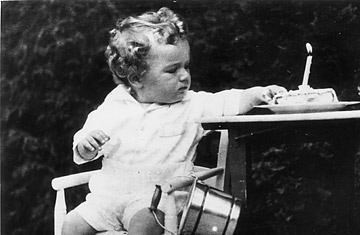
"Anne, they have stolen our baby," Charles Lindbergh reportedly told his wife on the night of March 1, 1932, when the couple discovered that their 20-month-old son, Charlie, had been taken from his crib. A ransom note read,
"Dear Sir, Have $50,000 ready ... Have them in two packages. Four days we will inform you to redeem the money. We warn you for making anything public, or for notifying the police, child is in gut care."
Though the Lindberghs eventually paid the ransom, the child was not returned and the hunt continued. Seventy-two days later, the baby's decomposed body was discovered in a wooded area near the Lindbergh's home in Hopewell, N.J.; he had been clubbed to death shortly after his abduction. Two years later, investigators traced the ransom money to German carpenter Bruno Hauptmann, who proclaimed his innocence up until his death by electrocution. The tragedy inspired Congress to pass the Federal Kidnapping Act, also known as the Lindbergh Law, which made kidnapping across state lines a federal offense.